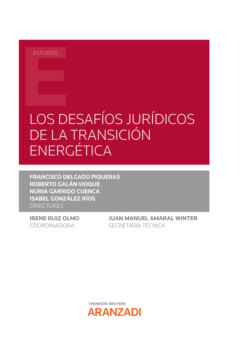Читать книгу Los Desafíos Jurídicos de la Transición Energética - Isabel González Ríos - Страница 59
На сайте Литреса книга снята с продажи.
5. SECURITY OF SUPPLY
ОглавлениеSecurity of the energy supply throughout Europe needs the cooperation of both EU Member States and private energy companies. In Europe’s current and future internal market, the energy autarky of specific regions is neither a viable or desirable goal.
In 1985, the Austrian Supreme Administrative Court decided that it was in the public interest for Austria’s energy sector to be as independent as possible from imports5. Today, however, the European internal market for energy does not rely on the autarky of individual Member States but on expansive energy systems that are interconnected and, in essence, create a pan-European energy network that can take advantage of cross-State energy supplies based on the principal of solidarity.
Of course, renewable energy communities6 and citizen energy communities7, which were regulated recently in EU directives, tend towards a certain degree of self-sufficiency; however, this form of self-sufficiency must not be driven by the desire for energy autarky in the sense of a ‘closed production and supply area’. As such, neither renewable energy communities, which relate to a specific area8, nor citizen energy communities, which are possible without spatial limitations9, should create ‘island situations’; on the contrary, both forms of energy communities are conceived in such a way that these communities enjoy the greatest possible energy security when connected to a well developed excellent energy network. Renewable energy communities and citizen energy communities are rather dependent on an operational network infrastructure and on the cooperation with the network operator10.
